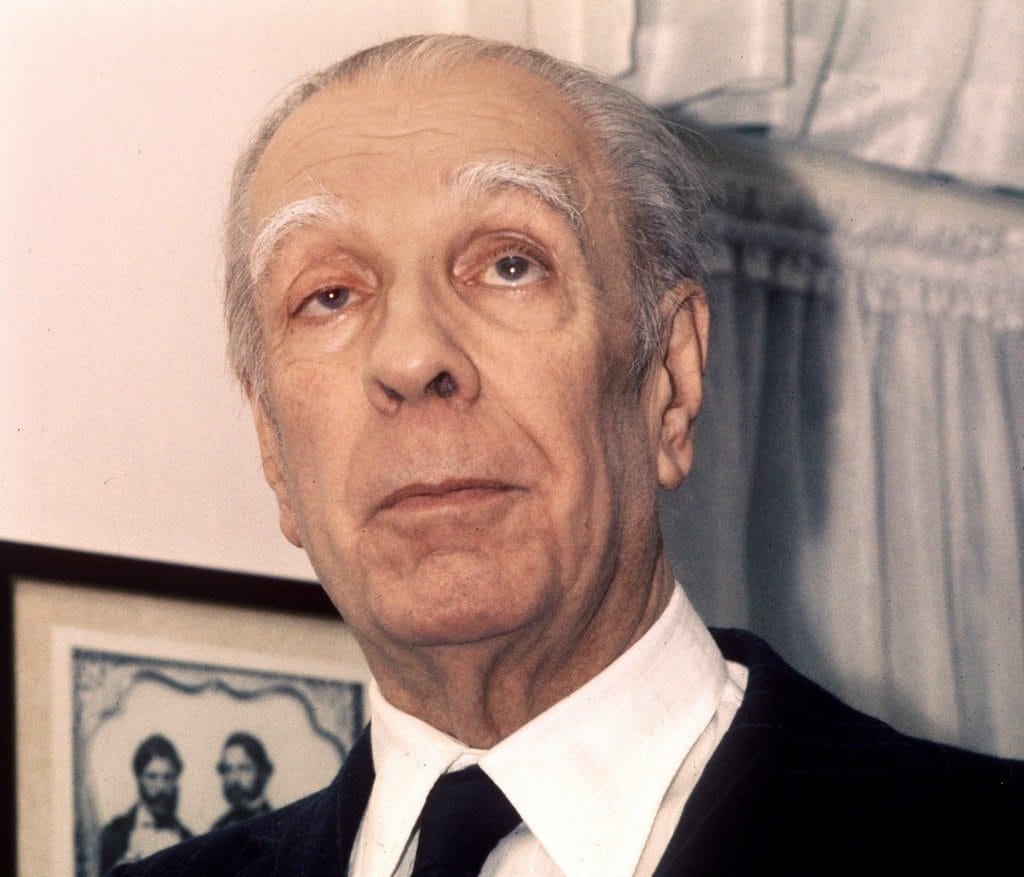JORGE LUIS BORGES, AN ETERNAL DREAM
About Kafka

4 min read
Translated from Article in elpais.com
My first memory of Kafka is from the year 1916, when I decided to learn the German language. I had tried before with Russian, but I failed. German was much easier for me, and the task was pleasant. I had a German-English dictionary and after a few months I don’t know if I was able to understand what I was reading, but I was able to enjoy the poetry of some authors. It was then that I read Kafka’s first book, which, although I don’t remember exactly now, I think it was called Eleven Tales.
It struck me that Kafka wrote so simply that I could understand it myself, even though the Impressionist movement, which was so important at the time, was generally a Baroque movement that played with the infinite possibilities of the German language. Later, I had the opportunity to read The Trial and since then I have read it continuously. The essential difference with his contemporaries and even with the great writers of other times, Bernard Shaw, or Chesterton, for example, is that with them one is obliged to take the environmental reference, the connotation with time and place. This is also the case of Ibsen or Dickens.
Kafka, on the other hand, has texts, especially in stories, where something eternal is established. We can read Kafka and think that his fables are as old as history, that those dreams were dreamed by men from another era without the need to link them to Germany or Arabia. The fact of having written a text that transcends the moment in which it was written is remarkable. You can think that it was written in Persia or China and therein lies its value. And when Kafka makes references, it is prophetic. The man who is imprisoned by an order, the man against the State, that was one of his favorite themes.
I translated the book of stories whose first title is The Metamorphosis, and I never knew why everyone gave it the name The Metamorphosis. It’s nonsense, I don’t know who came up with the idea of translating that word from the simplest German like that. When I worked on the work, the publisher insisted on leaving it like that because it had already become famous and was linked to Kafka. I think the stories are superior to his novels. Novels, on the other hand, never end. They have an infinite number of chapters, because their subject is of an infinite number of postulations.
I like his short stories better and although there is now no reason for me to choose one over the other, I would take that story about the construction of the wall. I have also written some short stories in which I tried ambitiously and unsuccessfully to be Kafka. There is one, entitled The Library of Babel and some others, which were exercises in which I tried to be Kafka. Those stories were interesting, but I realized that I had not fulfilled my purpose and that I had to look for another path. Kafka was quiet and even a little secret and I chose to be scandalous.
I started out being baroque, like all young writers, and now I try not to be. I have also tried to be anonymous, but anything I write is immediately known. Kafka did not want to publish much during his lifetime and had his work destroyed. This reminds me of the case of Virgil who also commissioned his friends to destroy the unfinished Aeneid. Their disobedience meant that, happily for us, the work was preserved. I believe that neither Virgil nor Kafka really wanted his work to be destroyed. Otherwise, they would have done the work themselves. If I entrust the task to a friend, it is a way of saying that I am not responsible. My father wrote a lot and burned everything before he died.
Kafka has been one of the great authors of all literature. For me he is the first of this century. I was at the Joyce centenary ceremonies and when someone compared him to Kafka, I said that was blasphemy. It is that Joyce is important within the English language and its infinite possibilities, but he is untranslatable. Instead, Kafka wrote in a very simple and delicate German. He cared about the work, not the fame, that’s for sure. In any case, Kafka, that dreamer who did not want his dreams to be known, is now part of that universal dream that is memory. We know what his dates are, what his life is, that he is of Jewish origin and so on, all this will be forgotten, but his stories will continue to be told.
Find my books below:
Find my books below click here or in this link too.
My articles are first written by Writesonic (AI) and then I edit them. Of all the AI software out there, Writesonic is the best and most economic.
https://writesonic.com?via=marciano89
About the Creator
Marciano Guerrero
Marciano Guerrero is a Columbia University graduate, retired business executive, retired college professor, and a disabled Vietnam Veteran. I enjoy writing fiction, and essays of human interest. I also have a keen interest in AI.





Comments
There are no comments for this story
Be the first to respond and start the conversation.